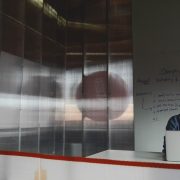Uber’s India tech team is marking its seventh anniversary of operations in the country by doubling down on its commitment to product innovation, including mission-critical work on high occupancy vehicles and micromobility.
Multimodal and shared transport are a big part of the mandate being driven by the twin tech centers in Bangalore and Hyderabad, with products including Uber Bus and micromobility being developed in the country from the ground up. Uber’s multimodal transport model envisages travel within cities at the tap of a button, without having to worry about booking the next leg of the journey at the next stop.
The Hyderabad tech center has completed seven years of operations, and Bengaluru center has completed five. Both have been instrumental in helping tackle mobility and delivery challenges in cities across the globe by investing in enhanced engineering capabilities through emerging technologies and skilled talent.
The twin engineering centers in Bangalore and Hyderabad have been the backbone of developing, innovating, and scaling technologies and innovations for India as well as addressing unique challenges for various global markets.
Commenting on the milestone, Megha Yethadka, Senior Director, Program Management at Uber said, “We are incredibly proud of what we have achieved over the last seven years, and are committed to providing customers around the world a seamless tech experience. We will continue to drive technologic transformations while also ensuring we scale our work efficiently.”
“Innovation is in our DNA at Uber, and our tech centers in India are buzzing with some of the best tech talent in the world. We develop customer-first products for our global and Indian market and continue to address realtime challenges. Our India tech journey is only just beginning,” said Jayaram Valliyur, Senior Director, Engineering.
“At Uber, we ignite opportunity by setting the world in motion, and will keep innovating and bringing new opportunities in the mobility industry. We’re building products to make mobility connected and multimodal in their true sense. The next few years will be very exciting across mobility and delivery,” said Manikandan Thangarathnam, Senior Director, Engineering.
One of the first three hires at the Hyderabad center, Naga Kasu, Director, Engineering, said, “It has been a very eventful journey for the India tech centers. We began in a house in Hyderabad with a few engineers. Seven years later, we are now spread across two hubs with a team of over 750. We started with a startup hunger and despite having grown, that hunger to innovate still remains. Our tech teams in India spend each day trying to solve problems for riders and eaters, creating impact all around the world.”
The India tech centers started their journey from a house in Jubilee Hills in Hyderabad in 2014, with a three-member team, and are now a crucial part of Uber’s tech story, with a 750-plus-member team, and plans to grow further. The company had recently announced plans to hire 250 more engineers in the India tech centers through 2021. The two centers together handle 13 critical technology functions for Uber globally, including Rider, Eats, Risk and Payments, Maps, GSS, Customer Obsession, Uber for Business, AdTech and Growth, Infra, and IT, among others.






